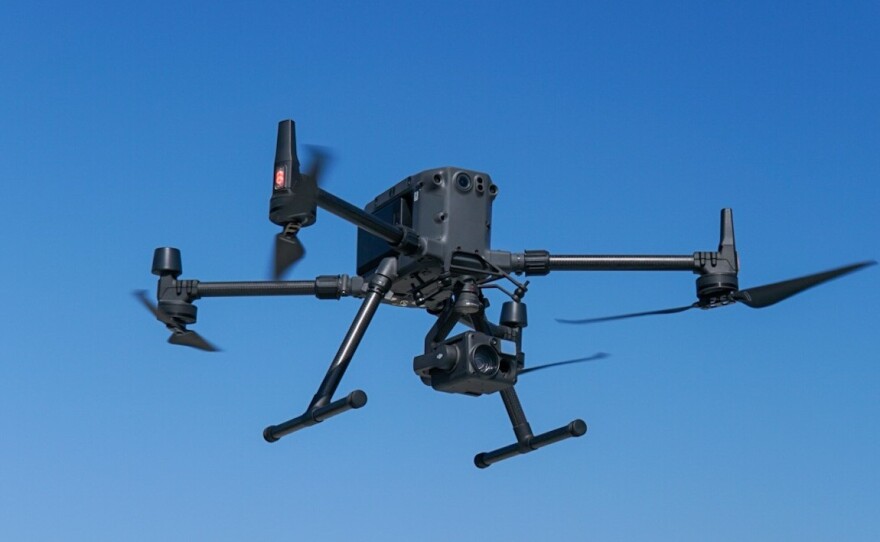The issues surrounding the Chula Vista Police Department’s controversial drone surveillance program have deepened with new revelations that the company supplying drones to the department has direct ties to the Chinese government.
In January, KPBS reported that multiple agencies within the U.S. government consider the drones made by China-based DJI Technology a national security threat because the company could potentially tap into software inside the drones and hand data over to Chinese officials.
Now, The Washington Post has reported that four entities that are either run or owned by the Chinese government invested in DJI.
When previously questioned by KPBS, a DJI spokesman said the company does not have access to data collected by its customer’s drones. And the company responded to the latest revelations by maintaining that DJI is privately held.
RELATED: Marines investigate former GOP chair's son for white supremacy ties
“The company is solely managed by and majority-owned by the founder team,” wrote DJI in a statement to KPBS. “Shareholders other than the founders do not participate in the company’s management and operation, but act as the financial investors whose sole aim is to earn a financial return on the investment. The Chinese government has not invested in DJI.”
Still, the news about the Chinese government ties to DJI only intensifies suspicions that Beijing may be using the company’s drones to spy on Americans.
DJI is among the world’s leading drone manufacturers, accounting for more than half of the global market. But for years the company has been flagged as a threat.
The Department of Homeland Security said in 2017 that DJI gave critical U.S. infrastructure and law enforcement data to the Chinese government. The Pentagon labeled DJI drones a potential national security risk last year. It had already banned the purchase of all commercial off-the-shelf drones in 2018 because of cyber security concerns.
But the ban only applies to federal agencies. This means that the 1,578 police, sheriff, fire and emergency service agencies that use drones have no such restrictions. A 2020 report by Bard College revealed that nearly two-thirds of these agencies bought their drones from DJI .

Eight of the Chula Vista Police Department’s 10 drones are made by DJI. Chula Vista officials, including Mayor Mary Salas and Police Chief Roxanna Kennedy, have refused to comment on the issues surrounding the drones.
Jim Lewis, a researcher at the DC-based, bipartisan Center for Strategic and International Studies law enforcement departments, said it’s time for Chula Vista and other law enforcement agencies using DJI drones to squash the risk that the Chinese government is watching Americans.
“They need to swap out the DJI drones,” Lewis said. “It's expensive. It could take a while. There are American companies now that offer comparable models.”
He said he’s not surprised investors linked to the Chinese government are funding DJI.
RELATED: San Diego Commission on Police Practices impeded by slow transition chair says
“We know the Chinese love surveillance and are engaged in massive collection of intelligence against Americans,” Lewis said. “But we also know there's a Chinese law that says any company that's asked to cooperate in providing intelligence has no choice and must do so.”
FBI Director Christopher Wray has said Chinese espionage has become so widespread that the bureau opens a China-related counterintelligence case nearly every 10 hours.
“Let me be clear: This is not about the Chinese people, and it’s certainly not about Chinese Americans,” Wray said.






